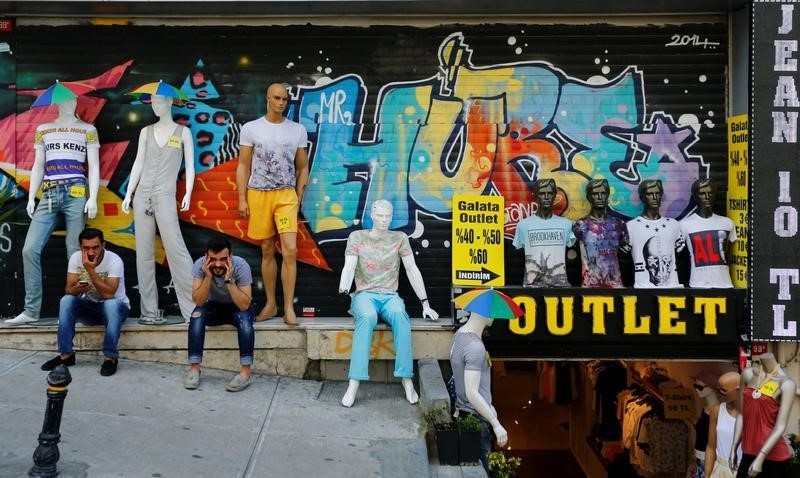By Seda Sezer
ISTANBUL (Reuters) – Turkey will miss government’s economic growth forecasts this year and next following the failed coup that has hammered the lira and put renewed pressure on the tourism sector, according to economists in a Reuters poll. The survey of 41 economists based in and outside Turkey, taken this week, predicted the economy would grow 3.5 percent this year and next, below the government’s respective forecasts of 4.5 and 5.0 percent. Turkish GDP grew a stronger-than-expected 4 percent in 2015 and 4.8 percent in the first quarter of 2016.
The country’s tourism sector has taken a battering this year as tensions with Russia and a spate of bombings hit tourist arrivals. Economists forecast tourism revenue would drop by about $8 billion this year, equivalent to 1 percent of GDP. The lira slumped to a historical low on Wednesday after President Tayyip Erdogan declared a three-month state of emergency, which economists said could further harm tourism.
Turkey’s external borrowing costs may rise and downside risks have increased following last Friday’s failed coup, Deputy Prime Minister Mehmet Simsek said on Thursday.
“There are a few reasons for the slowdown we are expecting: a deterioration in tourism and, secondly, that companies with foreign exchange debts have seen their financing costs rise due to the weaker lira,” said Finansbank economist Deniz Cicek. “A slowdown in the global economy and the impact of Brexit on the EU economy could impact growth negatively from trade. The coup attempt may escalate this slowdown by increasing external financing costs and further denting tourism.” Turkey is largely dependent on imports for its growing energy needs and relies heavily on tourism to help fund its current account deficit, which stood at more than $32 billion in 2015, or about 4.5 percent of GDP. The number of foreign visitors to Turkey fell more than a third in May, the biggest drop in at least 22 years.
Relations between the Kremlin and Erdogan remain strained over the Syria crisis and the Turkish shooting down of a Russian fighter jet in November, despite an agreement last month to resume bilateral cooperation. “Interest rate hikes in the U.S. are likely to come back onto the table later in the year, which could make external financing conditions more difficult and cause the lira to drop … The recent events will almost certainly make growth weaker. In the near-term it will hit confidence and may result in weaker consumption and investment,” said economist William Jackson at Capital Economics. “Over the longer term, it could reduce investment and productivity growth. We haven’t changed our forecasts yet, but the risks clearly lie to the downside and we plan to revisit them once the dust settles.” Inflation has been in a downward trend, but in its latest Monetary Policy Committee decision the central bank said inflation may show a marked increase in the short term due to developments in unprocessed food and tobacco prices. Consumer prices rose 7.64 percent year-on-year in June.
Inflation will remain significantly above government targets in the next two years. Economists expected 7.8 percent inflation in 2016 and 7.5 percent in 2017. The government aims to keep inflation at 7.5 and 6 percent respectively. The risk to inflation is coming from a depreciation in the exchange rate, Simsek said on Thursday.
Turkey has missed its inflation targets for five years in a row, with a 20 percent lira depreciation against the dollar and rising food prices to blame for the failure last year.
(For other stories from the Reuters global economic polls:)
(Editing by Gareth Jones/Jeremy Gaunt)
Turkey’s economy to miss growth targets for next two years as tourism dips: Reuters poll

By Seda Sezer
















